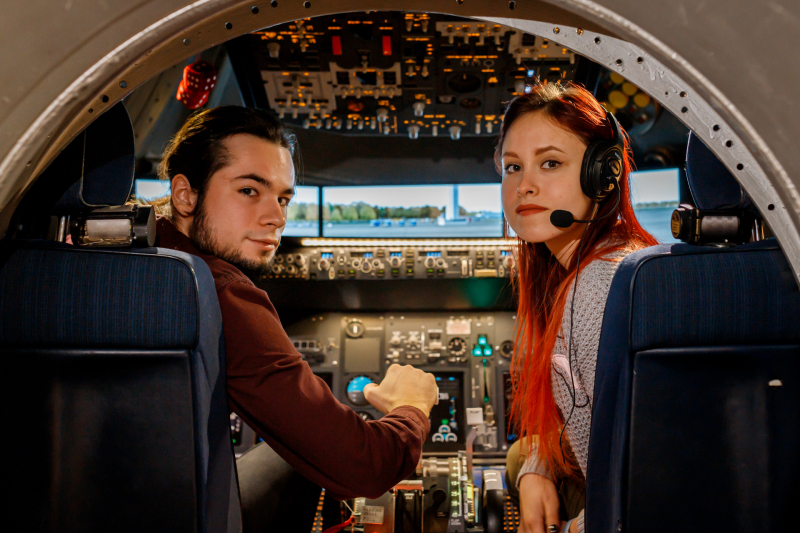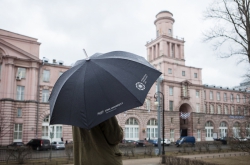The oldest cosmonautics club in Russia, the G.S.Titov Youth Cosmonautics Club was home to many renowned Russian and Soviet astronauts, who contributed greatly to the history of human space exploration. Among its graduates are astronaut and researcher Ekaterina Ivanova, astronaut and hero of Russia Anatoly Khramov, and pilot-cosmonaut and hero of Russia Andrey Borisenko, who spent a year working at the International Space Station (ISS).
The club is now training specialists in aerospace technologies and conducting flight training: its equipment includes an aviation simulator complex with a procedural aviation simulator and a professional aviation simulator BOEING-737-600, and a microcontroller laboratory.
ITMO University has long been collaborating with the club on a range of projects. This year, it also provided a platform for additional classes for the students of the Faculty of Infocommunication Technologies, who can now come to the club and practice on the BOEING-737 flight simulator together with an instructor. According to Andrey Karmanov, an associate professor at the Faculty of Infocommunication Technologies who initiated this collaboration, this experience can help students majoring in the field of UAV technologies prepare their research papers and theses.
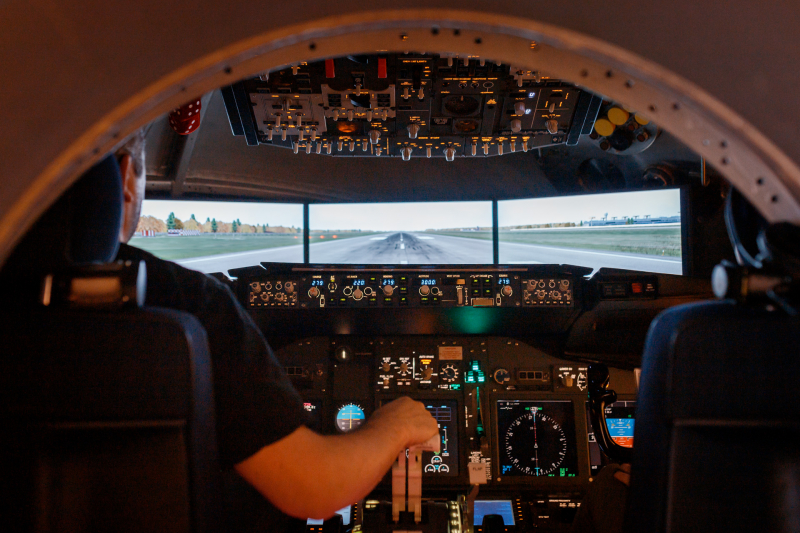
“Today everyone is talking about UAVs but a lot of people don’t fully understand what lies beneath this term,” says the expert. “However, you cannot learn to swim in a pool with no water in it. Basic aviation training is necessary for students developing onboard systems, as well as solving a wide range of problems associated with drones, as it allows them to gain a deeper understanding of the area they work in. I am convinced that IT specialists who will deal with air traffic control issues and robotic systems won’t be able to do their job without this training. Yes, this is not exactly what students majoring in IT expect to see in their curriculum but, as our experience indicates, students are ready to grab this opportunity.”
Dispatch control system for drones: making flights safer and more effective
Students have already started working on their theses. Besides, many of the faculty’s students are involved in full-fledged research concerning the development of the university’s dispatch control system for UAVs.
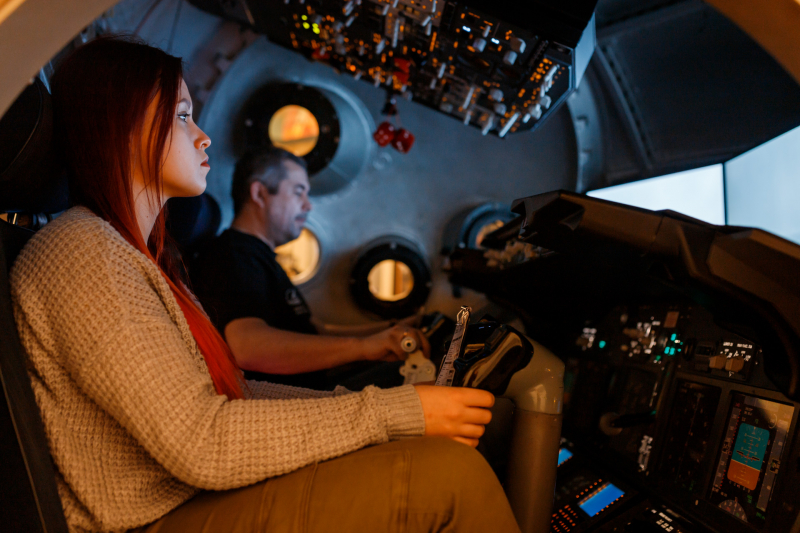
The purpose of the project is to solve a wide range of problems related to ensuring flight safety. These problems lead to airspace being used inefficiently and civilian flights being too expensive and dangerous, and today there are practically no effective tools for monitoring UAV flights, say the developers.
The specialists of the Faculty of Infocommunication Technologies are working on a system that would include several components at once. Their situational awareness system includes the construction of situational centers and command posts able to transmit information in the real-life mode.
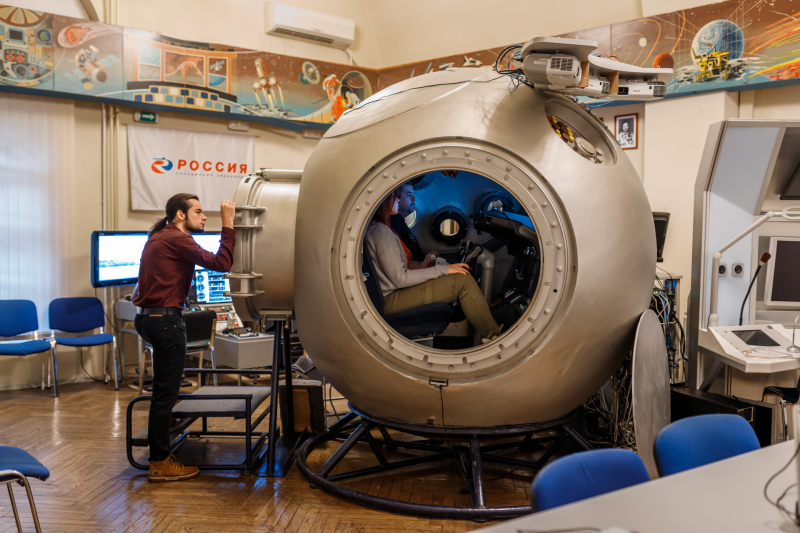
Special attention was paid to the process of communication between the dispatcher and the crews, as well as the mechanism of applying for the use of airspace. It is proposed to submit such applications via a website and mobile application with the opportunity of getting electronic permission. Automation of this process will allow for the elimination of inconsistencies with the requirements of local regulations, as well as adapting the route to changing weather conditions.
“Thus, we’re creating a system that will automatically cover the entire technological cycle: from receiving applications for flight authorization, flight monitoring, preparing flight tasks, and to post-flight preparation and secondary processing of remote sensing data,” summarizes Andrey Karmanov.
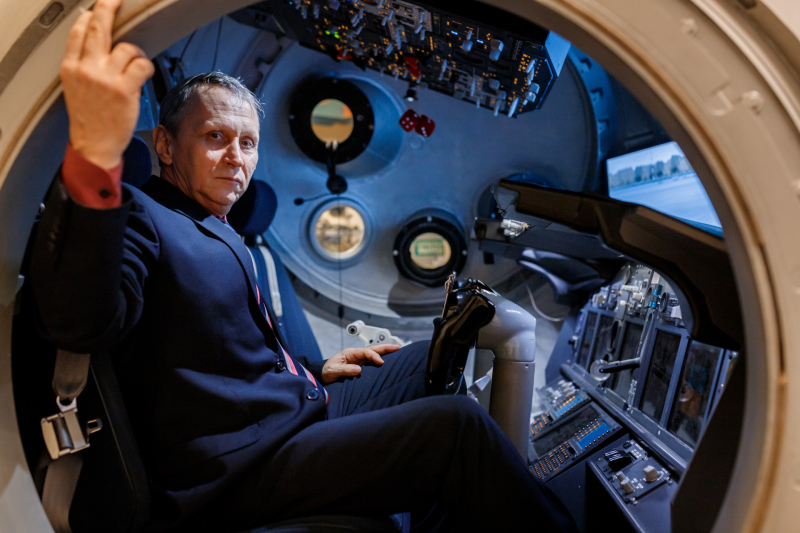
Projects of students of ITMO’s Faculty of Infocommunication Technologies
For several years, 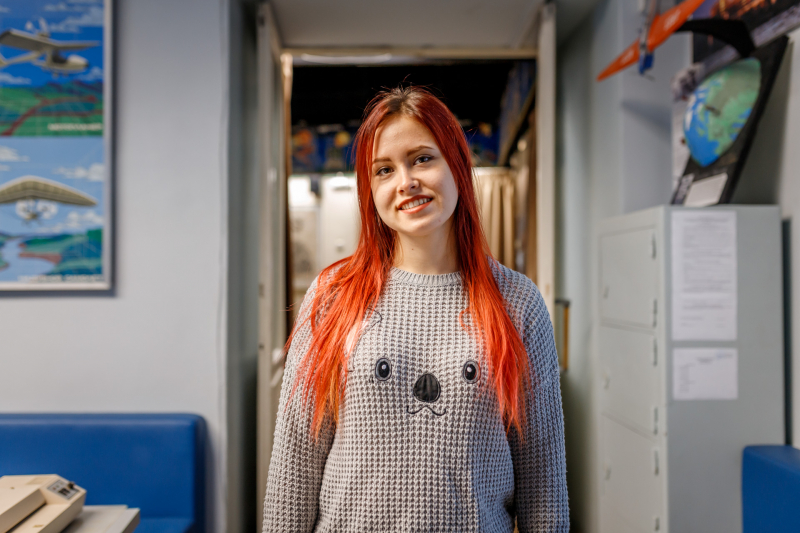
“Our current project focuses on UAV control systems, and I’m here, first of all, to understand what it’s like to pilot a Boeing and dive deeper into this field. Of course, I really enjoyed being a pilot. Apart from that, it was useful to learn about the rules in accordance with which flights are carried out, as well as instructions related to the prevention of aircraft collisions in the airspace,” shares Natalia.
Yaroslav de la Peña Smirnov, a fourth-year Bachelor’s student from Mexico, also took part in this collaboration. When he was a kid, he wanted to become an aviator, while now he is working on a project aimed at developing software for dispatching UAV group flights.
“I know Russian, and this is why I decided to study in Russia. I first wanted to major in aircraft construction, but I was interested in programming and information technologies as well, and this brought me to the field of UAVs,” shares Yaroslav. “I’m now working on my thesis which is also dedicated to the topic of drones. This is why I decided to give it a go and come here to see how these processes are carried out. It was a very valuable experience for me, and the knowledge that I got here will definitely come in handy in my future research.”
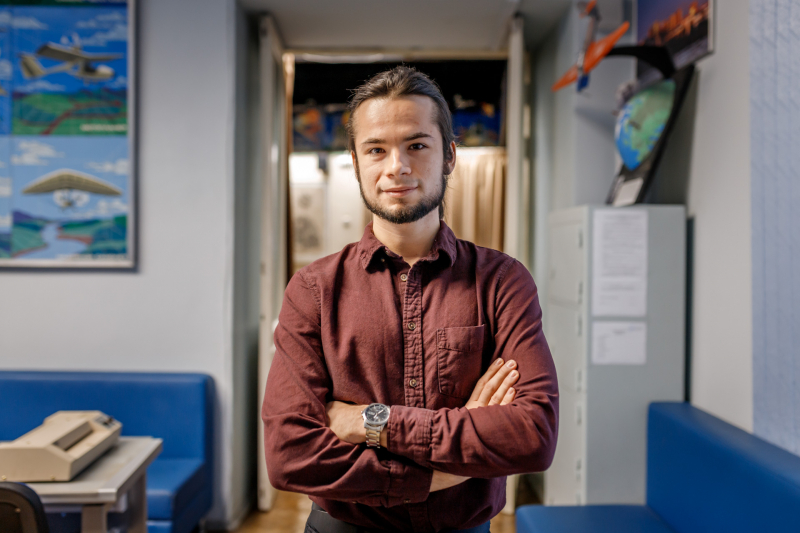
According to Andrey Karmanov, any ITMO University student can participate in the internship at the Youth Cosmonautics Center.
